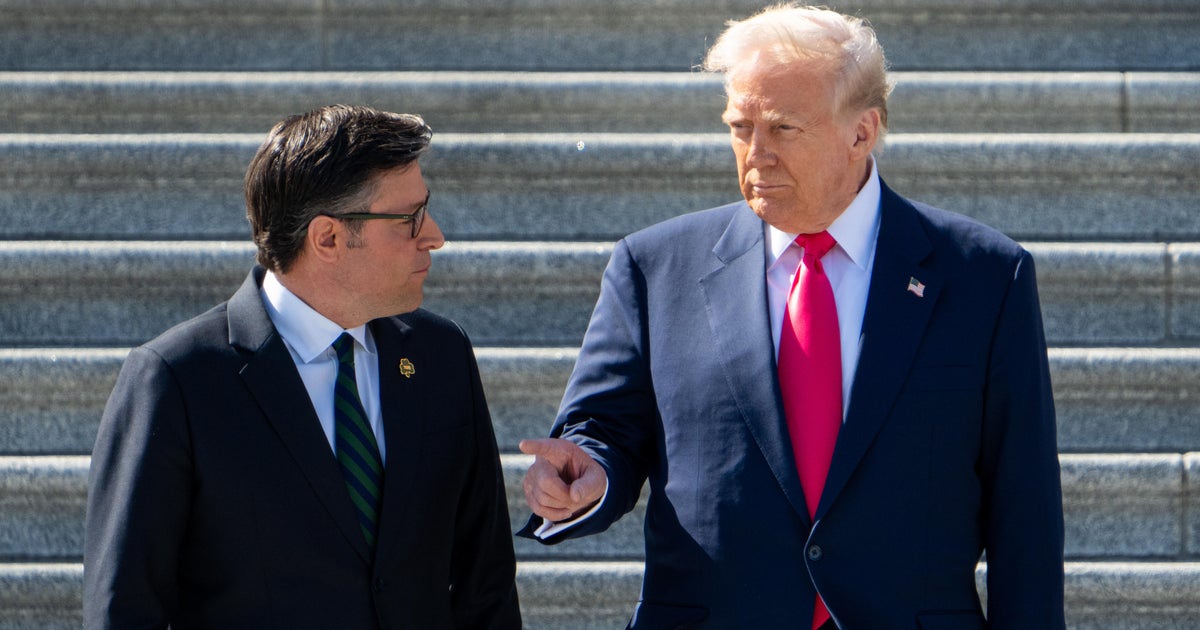Johnson Asserts Republicans Are Poised to Secure Budget Resolution Approval
House Speaker Mike Johnson declared on Wednesday that Republicans have secured enough votes to pass the upcoming federal budget resolution, signaling a potential breakthrough in months of partisan gridlock. The Louisiana Republican made the announcement during a press briefing at the Capitol, citing unified GOP support for a proposed spending package that aims to curb discretionary spending while avoiding a government shutdown. Political analysts suggest this development could mark a turning point for Johnson’s leadership and the party’s fiscal agenda.
Breaking the Budget Impasse
After six months of contentious negotiations and four temporary funding measures, congressional Republicans appear to have reached consensus on a budget framework. Speaker Johnson revealed the proposed resolution would:
- Reduce non-defense discretionary spending by 6-8% from 2023 levels
- Increase military and veterans affairs budgets by 4%
- Implement work requirements for certain social programs
- Allocate $15 billion for border security measures
“We’ve bridged the divide between our moderate and conservative members,” Johnson stated, flanked by Appropriations Committee leaders. “This agreement reflects core Republican principles while acknowledging fiscal realities.”
Behind the Scenes of GOP Unity
The announcement follows weeks of intense negotiations between House factions. According to congressional staffers, Johnson and his leadership team conducted over 40 individual member meetings since January to address concerns. Key compromises included:
- Delaying controversial entitlement reforms until 2025
- Adding district-specific infrastructure projects for hesitant moderates
- Assurances to Freedom Caucus members about future spending cuts
Budget Committee Chairman Jodey Arrington (R-TX) told reporters, “The Speaker has threaded the needle. We’re looking at the most fiscally conservative budget in a decade, with 92% of our conference now on board.”
Potential Roadblocks and Democratic Response
Despite Republican optimism, significant challenges remain. The proposed resolution must still navigate:
- Senate Democratic opposition to spending cuts in social programs
- Potential procedural hurdles in the House Rules Committee
- Threats from conservative groups demanding deeper reductions
Senate Majority Leader Chuck Schumer (D-NY) dismissed the GOP plan as “dead on arrival,” criticizing its “draconian cuts to education and healthcare.” The White House has threatened a veto, with Press Secretary Karine Jean-Pierre calling the proposal “a blueprint for economic stagnation.”
Economic Implications of the Proposed Budget
Independent analyses suggest the Republican plan could have mixed economic consequences. The Congressional Budget Office projects:
| Metric | Projected Impact |
|---|---|
| Deficit Reduction | $120-150 billion over 5 years |
| GDP Growth | Potential 0.2-0.4% slowdown in 2024 |
| Employment | 15,000-30,000 fewer public sector jobs |
Maya MacGuineas, president of the Committee for a Responsible Federal Budget, offered measured praise: “While not perfect, this represents the first serious attempt at deficit reduction in years. The test will be whether these cuts are sustained or reversed in future budgets.”
What Comes Next in the Budget Process
The House is expected to vote on the resolution within two weeks, with Senate consideration likely stretching into May. Key milestones include:
- House Rules Committee markup (April 15-17)
- Potential floor amendments (April 18-19)
- Senate Appropriations Committee review (April 22-26)
- Possible conference committee negotiations (Early May)
Political scientists note the high stakes for Speaker Johnson. “This is his first major legislative test,” said Georgetown University professor Sarah Binder. “Success could cement his leadership, while failure might embolden challengers from the party’s right flank.”
Long-Term Fiscal Policy Ramifications
Beyond immediate budget concerns, the resolution could set important precedents:
- Reestablishing spending caps first implemented in 2011
- Creating a template for future GOP budget proposals
- Influencing the 2024 party platform on fiscal issues
As Congress prepares for this critical vote, all eyes remain on whether Republican unity will hold—and how Democrats will respond to what may become the defining fiscal battle of the session. For ongoing coverage of the budget negotiations and analysis of the economic impacts, subscribe to our daily policy briefing.
See more BBC Express News

